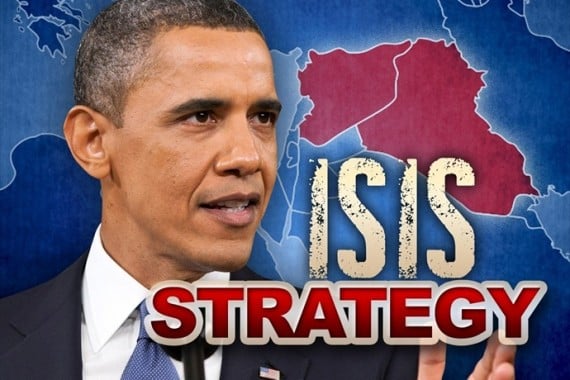
As terrorism struck again in Nice and Germany and… Donald Trump outlined his policy against Islamic State: as president, he will seek a full declaration of war from Congress, the first such formal invocation since Pearl Harbor.
Trump was short on specifics but very clear he would take the strategies of the post-9/11 era into a presidency. Clinton, for her part, intends on “intensifying the current air campaign [and] stepping up support for local forces on the ground.” Their French counterpart, President Francois Hollande, declared “We will continue striking those who attack us on our own soil.”
The problem is that none of that will work. While perhaps necessary at times, military force is far from sufficient in defeating Islamic terrorism.
Post-Germany, Post-Nice, post-Brussels, post-Turkey, post-Paris… it is clear the last 15 years of the war on terror in general, and the last two against Islamic State in particular, have not worked. No society can defend itself fully when any truck can be turned into a weapon. No amount of curating social media will prevent disenfranchised people from becoming radicalized. Ramadi fell, Fallujah fell, Mosul will likely fall, and Nice still happened.
“The effect that’s going to happen now is like stepping on a ball of mercury,” stated one American intelligence analyst. “You step on a ball of mercury, all the pieces break up and spread around the world.”
A new way of thinking is needed.
The west must be willing to understand Islamic terror beyond scary search engine terms and decide if we wish to tackle the problem at its core, or simply choose to live with a new normal where incidents like Nice will just happen. Here is what might be considered. It will be hard, and will be unpopular.
— Admit the current strategy has not worked. Agree, in the US and abroad, that something new is needed. Statements such as those from Trump and Clinton block anything beyond more of the same.
— Understand that the roots of Islamic terror rest in part in the Sunni-Shia divide, which the west helped fuel in arming jihadists in Afghanistan in the 1980s and whose fuse the west lit in 2003 when it invaded once-stable Iraq. A significant amount of terror takes place insider the Muslim world, and sectarianism is a steady fuel for recruitment.
At the same time, both sides of the divide recruit well off of horror stories of CIA torture, the continued existence of Guantanamo, the fits of Islamophobia played out in western refugee policy, French and American militarization of Islamic Africa, and a core belief that the actual goal of the western powers is not to “defeat Islamic State,” but to create a permanent state of war against Muslims while garrisoning the Middle East (it used to be more about taking Arab oil, but the point is the same.) More war, more troops, and more draconian security measures are just gas on those fires.
— Another driver of Islamic terror is the unhappiness of many Muslim youth with the autocratic, secular governments in most of their Arab nations. The west must pull back its support for such governments and lessen its fear of non-secular governments. What Washington sees, for example as expedient, realpolitik decisions to support the repressive Saudi government, Bahrain where the United States turns a blind eye to human rights in return for an important naval base, or allowing the Arab Spring to be crushed in Egypt as a military coup unseated the only democratically elected president in the nation’s history, have not worked well in even the medium term. Same for supporting the corrupt government in Baghdad.
The west must find rapprochement with Muslim leadership (Iran, with a robust participatory component inside a fundamentalist theocracy, is an interesting example.) Much of radical jihadism is less about destroying the west than it is about changing the Middle East; even 9/11, the worst of the terror attacks, had as its extended purpose pulling the United States into Afghanistan in hopes of triggering a broader Muslim uprising across the region.
— Immigration out of the Middle East is toothpaste out of the tube. It can’t be snaked back in by tough policies against refugees or stopping Muslims from entering the United States. Western nations must assimilate their Islamic immigrants.
Islamophobia, law enforcement discriminatory targeting of Muslims, hot-headed rhetoric and the rise of right wing governments pleasing citizens enamored anxious to trade their freedom for security, fuel the anger and sense of displacement of so-called lone wolves, and send them to the solutions offered by groups such as Islamic State. It is not about cleaning up Twitter. It is about chipping away at the mindset that makes those 140 character messages so attractive.
This is, in the end, a long war of ideas. Success must include difficult decisions to acknowledge the tides of history moving across the Middle East. Because you can’t stop the next truck. You do have a chance at making it so a man won’t choose to get behind the wheel.
Reprinted with permission from WeMeantWell.com.

